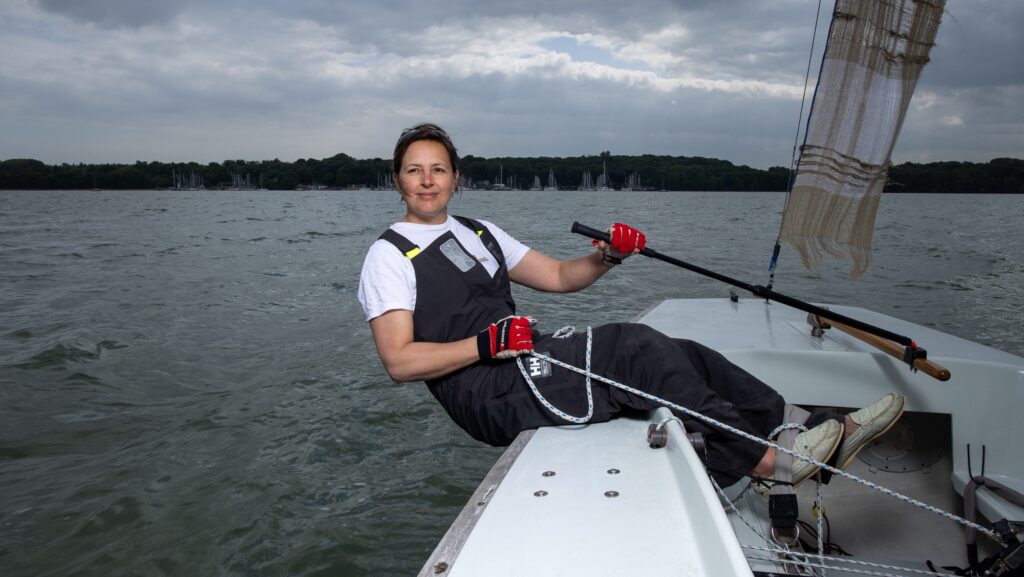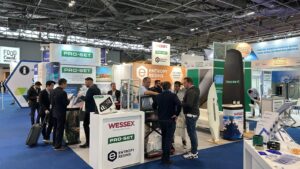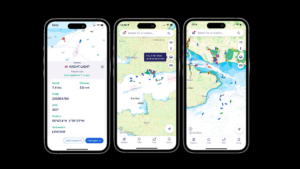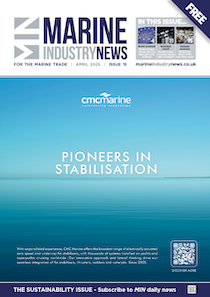Equality is not a yearly insta post, says boatbuilder

“Creating a diverse, equitable and inclusive work environment is an everyday challenge and conversation, not a yearly post,” says Belinda Joslin. She’s the founder of the Instagram group, Women in Boatbuilding, which she started in 2019 when she began working at Spirit Yachts. After an encounter with another female boatbuilder, Joslin decided to create a space where women’s voices could be influential.
Now, Women in Boatbuilding runs an official mentoring programme in the UK which has made a significant difference to some of the women involved. The group also holds zoom socials, with up to 20 women gathering to connect and chat about what they’re working on, with a planned in-person social on 17 March at the Boat Building Academy in Lyme Regis (register online).
“In youth, you presume that ‘someone’ will be sorting out society’s inequalities,” says Joslin. “I’m 50 next month, and it blows my mind that we still have such marked inequalities, with misogyny growing in some groups. I strongly believe that we have a social responsibility to address the inequalities we see.”
According to Louise Sanger, head of research, interpretation & engagement (within the Heritage & Education Centre at Lloyd’s Register Foundation) just 29 per cent of the entire maritime workforce is made up of women. The Lloyds initiative, Rewriting Women in Maritime History, is looking to help highlight female voices in the industry. Joslin is one of the women being featured. She grew up around boats. She owned her first one at aged ten. Her father built wooden boats in his garage and at 14, Joslin’s father built her an Optimist, which she later used to win the nationals. At 18, she participated in the national circuit and achieved the title of youth national champion.
And she is keen to use her platform to further equality, but notes there are challenges along the way.
“A long-term challenge is definitely retention and creating work environments that women want to, and can stay in, for life,” she says. “The more women you get in a yard, the less any of these problems becomes an issue.”
She hopes to see women in yards becoming the norm, in all roles and is advocating for them to be taken as equals on day one, treated with respect and included in all things. “We still have lots of boatyards with no women, and lots with a single woman – which is a lonely experience. By creating a supportive community of women that understands what each other are experiencing, we’re all more likely to stick with it,” she says.
“One of the things that pops up time and time again is the lack of PPE that fits.
“If yards could make an effort to get PPE that works for all body shapes, that would be a great start.”
“And having suitable toilet and changing facilities – there are plenty of stories of women having to walk to the local supermarket to use their toilets and having to change in communal areas. These things are basic and not rocket science! But they massively affect your work.”
Last year, Joslin was invited to the National Shipbuilding Office’s Shipbuilding Enterprise for Growth Shadow Board where she spoke out about the importance of inclusivity and gender diversity in the industry.
“When you’re talking about diversity in a niche industry, it’s easy to get pulled into situations to deliver on other’s diversity tick boxes. For example, the companies and organisations that make a big fuss on ‘International Women’s Day’ but then do nothing for the rest of the year.”
“That’s why this year I’m focusing on what will make a difference to the women in our community.”
In the UK, women are a ‘minority’ in the STEM sector workforce, making up just 24 per cent of total employees, says Sanger. At education level, progress is being made with 30 per cent more women and girls doing STEM A levels since 2010 but the gap between study and practical employment is still huge.
Sanger’s project, to display material that narrates the pivotal role of women in shipping, has studied archived material in London and across the UK and Ireland and is now expanding its research internationally. A partnership between Lloyd’s Register and Lloyd’s Register Foundation, the initiative is set to run for several years, highlighting the forgotten female heroes from the maritime industry, and sharing stories, like Belinda Joslin’s, for the first time.











